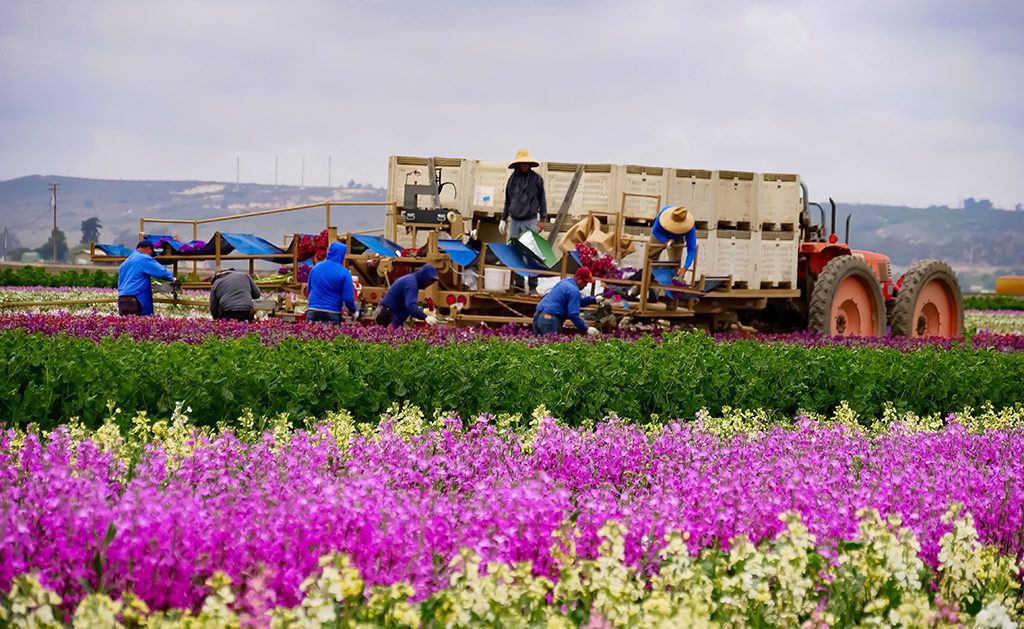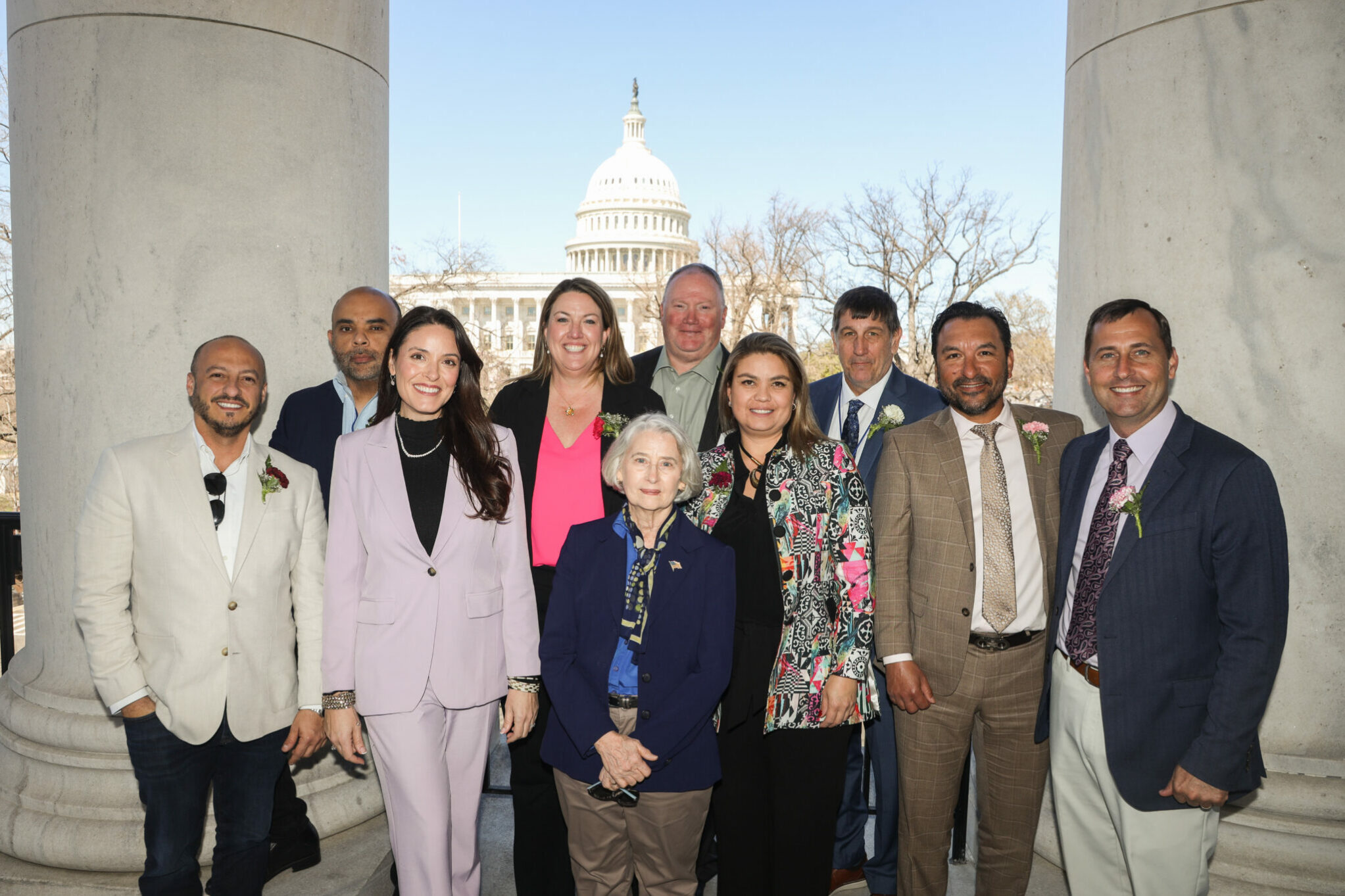
Labor shortages are impacting growers and jeopardizing their future success. During its Congressional Action Days, SAF will urge Congress to act on legislation that would preserve agriculture’s experienced workforce and provide a worker visa program allowing access to legal, reliable workforce.
Editor’s note: Advocating for the floral industry’s needs on Capitol Hill is a key priority for the Society of American Florists. What issues are most likely to impact you and your business — and how? What is SAF doing about it? In this ongoing series, SAF senior lobbyist Joe Bischoff breaks down one issue at a time and outlines SAF’s advocacy work on it.
This week, Bischoff answered questions about the importance of addressing the agricultural labor crisis and what it means to all segments of the floral industry and its supply chain. With Congressional Action Days a few weeks away, now is the time to register for the event and get up to speed on SAF’s advocacy asks.
SAF: Why should retail florists — or any segment other than growers — care about immigration reform?
Joe Bischoff: With the rise of the COVID-19 pandemic, labor shortage issues across the industry have reached a severe level. Whether it be in greenhouses or storefronts, dependable employees are desperately needed to maintain a steady flow of product through the supply chain. Growers especially rely on immigrants and H-2A workers— foreign nationals who fill temporary agricultural positions — to work-labor intensive jobs. Without enough workers in place at the grower level, the fragile supply chain begins to collapse at the start, so that impacts availability of product. And even when growers can find labor, H-2A program wage rules make that labor costly and often unsustainable for producers to maintain.
SAF: It seems like SAF has been lobbying immigration reform for years — even decades — with little success. Why has it taken so long?
Joe Bischoff: Immigration reform is a huge issue that often gets swept under the rug or is highly politicized. Although a complete overhaul of the system has yet to occur, there has been progress over the past few years that should give SAF members reasons for hope. Two of those wins include the House passage of the Farm Workforce Modernization Act and consideration of the Dignity Act.
In the last Congress, the House passed the Farm Workforce Modernization Act by a 247-174 vote. This bill would have established a program for farm workers to earn legal status through continued agriculture work, giving those who have worked at least 180 days in the last two years temporary status. The bill also made changes to the H-2A temporary agricultural worker visa program by setting up a pilot program to allow visa holders to change jobs without a new application. It also developed the E-Verify system that allows agricultural employers to determine the eligibility of their employees to work. However, the legislation was never taken up by the Senate. Lawmakers are looking at creating a similar package that has a better chance of passing the Senate and making its way to President Biden’s desk.
In this Congress, the Dignity Act was introduced in the House with the purpose of securing borders, enhancing E-Verify enforcement, and providing a 10-year path to enhanced legal status with five-year renewable visas. In addition, it would set up a market-based certified agricultural worker program. The House has yet to vote on the legislation.
SAF: With all that in the works, what is SAF asking for?
Joe Bischoff: SAF is urging Congress to make significant and meaningful reforms to the H-2A program. Changes are desperately needed to make this program more reliable, cost-effective, and user friendly. SAF is also asking that the House continue to improve the Dignity Act and that the Senate consider passage of the Farm Workforce Modernization Act to provide a reliable, efficient workforce to the agricultural industry.
SAF: How likely is it that we’ll see any meaningful progress on immigration reform this year?
Joe Bischoff: Due to the large number of to-dos that Congress already has on its list, it is highly unlikely that we will see much meaningful progress on immigration/agriculture labor reform this year. However, if we aren’t consistently talking about these issues with lawmakers, there will be no significant change. This is what makes events like Congressional Action Days so vital. It helps us continue to beat the drum on our priorities, so when there is opportunity to move forward, we can leverage it.
SAF: What can members do to get involved a make a difference?
Joe Bischoff: We say this all the time, but we say it because it is true: SAF accomplishes its legislative priorities when members actively get involved to help push issues forward. The best way to make your voice heard to members of Congress is attending Congressional Action Days, happening this year March 28-29, 2022, in Washington, D.C. The event is your opportunity to speak to key lawmakers about our industry’s priorities. These meetings are a way to connect with legislators and their staff and build personal rapport. Even if you are unable to attend Congressional Action Days this year, there are still ways to get involved in SAF’s advocacy work! Call or write to your legislators and share the legislative priorities we’ll be focused on at CAD: agriculture labor reform, FNRI funding, and GSP reauthorization. For more information on each of these topics, visit SAF’s website.
Katie Butler is the senior vice president of the Society of American Florists.






